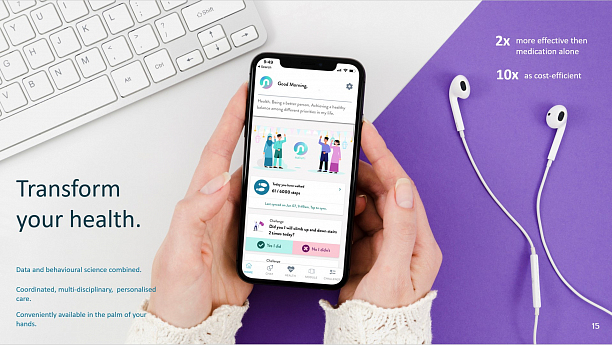Problem Statement:
Today, more people die from reversible chronic diseases than all infectious diseases combined. Similarly, more people die from suicide than all wars, terrorism and murders combined. While many are racing to address these crises of humanity, few see the connection between diabetes and depression, or heart disease and anxiety, or the value in addressing physical and mental health in an integrated manner.
There are 13 million adults at-risk of chronic disease and almost 7 million adults suffer from mental health problems in Malaysia today. Over 50% of the 10,000+ Malaysian white-collar employees enrolled and assessed in Naluri’s health programme have combined physical and mental health risks. Yet, these health issues are avoidable, and this need not be through expensive medication and hospitalisation. The economic impact of addressing this is large; preventing chronic disease for just one person could save up to RM 80,000 across a 10-year period. Employers are not only bearing the increasing financial burden associated with these diseases, but are also facing losses in employee productivity. We estimate that the productivity losses associated with absenteeism and presenteeism due to chronic disease are almost equal to the direct medical costs associated with chronic disease, presenting an even stronger case for change.
Limitations in current healthcare services:
• Reactive and transactional. Whether someone sees a doctor at a hospital or books a consultation session through a telemedicine platform, it is both reactive – they wait until they get sick and then reach out for help – and it is transactional. The doctor gives them advice and maybe a prescription – and expects them to manage their own health at home, until they come again for a follow-up consultation. But chronic diseases cannot be solved with a single consultation or prescription. Behaviour change and care beyond the hospital/clinic is needed to achieve health improvements.
• Activity-based instead of outcomes based. Healthcare is charged based on an activity, not whether someone actually gets healthier. A doctor is paid for the consultation, but not whether the patient improves their diabetes, hypertension or mental health. Similarly, there are many digital health apps out there that only track activities – e.g., number of steps, counting calories, amount of sleep – but does not deliver actual clinical health improvements.
• Siloed and not integrated. Hospital care tends to be siloed by specialisation. If one saw a cardiologist, she only focuses on the heart. A separate gastroenterologist focuses on gut health, a dietitian focuses on food, and a psychologist focuses on mental health. But care is not coordinated. Yet, chronic diseases are deeply inter-related and healthcare professionals need to work as a team, with the patient at the centre, rather than treating narrowly by each individual specialisation.
